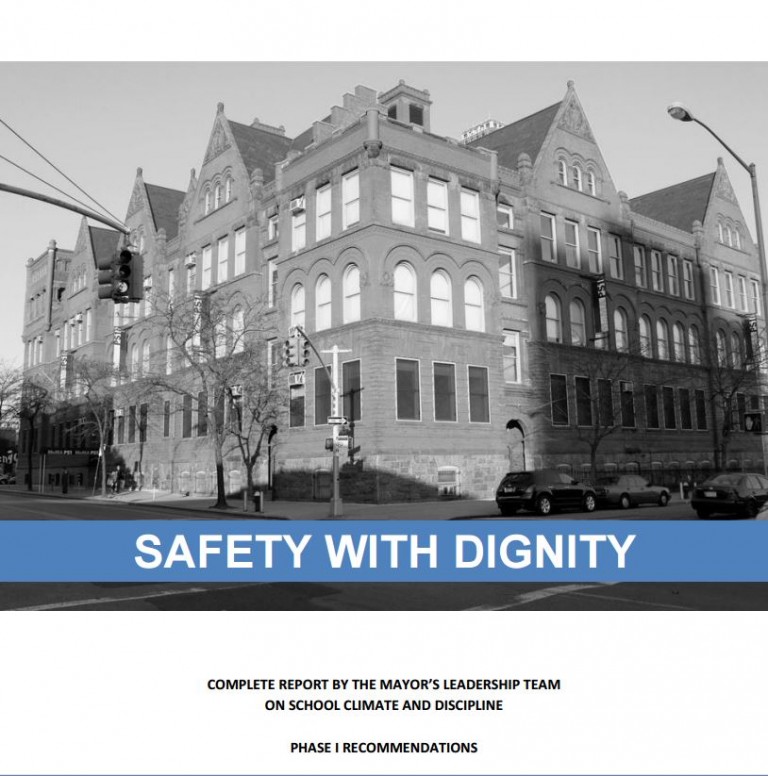PHOTO: The roadmap is based on the recommendations contained in ‘Safety with Dignity,’ a report by the mayor’s Leadership Team on School Climate and Discipline. Photo Courtesy of Mayor’s Office
Mayor Bill de Blasio this week unveiled a roadmap to end overly punitive school discipline policies, which disproportionately affect students of color and students with disabilities, according to the administration.
The program, de Blasio said, includes additional training for police officers in how to de-escalate school conflicts, expanded access to behavioral health treatment options in high needs schools, and increased training and support for school personnel in non-punitive school disciplinary strategies.
The administration’s roadmap is based on recommendations developed by the mayor’s Leadership Team on School Climate and Discipline – a task force comprised of city leaders, City Council leaders, educators and community stakeholders that examined ways to make disciplinary practices in schools more equitable and effective.
The strategy announced includes both system-wide improvements to continue positive citywide trends, as well as concentrated resources to reduce disparities and better support high-need schools and students, the administration indicated. Over the next year, the city has pledged to: expand de-escalation training; expand restorative techniques; expand social-emotional learning; and develop uniform metal detector protocol.
“When I was a public school parent, it was incredibly valuable to know that Dante and Chiara were safe and supported in class,” de Blasio said. “Parents in all neighborhoods across New York City deserve the peace of mind to know that their children are empowered to learn and succeed in a safe, inclusive environment. This roadmap will ensure that schools across the city bring families, educators, safety professionals, and community leaders together to support one of New York City’s most prized resources – our students.”
The city Police Department is expanding de-escalation training for school safety agents and for the first time is offering Collaborative Problem Solving training for high-level officers and other police officers who may be called into a school during times of crises. Training will highlight best practices when policing in a school and will also emphasize de-escalation.
The city will expand disciplinary practices that incorporate restorative techniques – a form of discipline aimed at reducing future incidents through dialogue, self-reflection, and teaching impulse control. Restorative techniques can also be used in tandem with suspension, officials said.
De Blasio said the city will expand resources that support students’ social-emotional learning. Social-emotional learning, according to the administration, emphasizes self-reflection and impulse control, and is particularly important for students who may have experienced trauma.
Another key tenet of the roadmap is uniform metal detector protocol, de Blasio said. The city does not have a set of criteria for adding or removing metal detectors or assessing detector usage. Currently, there are 80 permanent scanning campuses across the five boroughs. Total crime in city public schools has declined 48 percent over the last decade, de Blasio said.
The mayor’s Leadership Team on School Climate and Discipline will release a second set of recommendations in the spring of School Year 2016.
“The significant crime reduction within our city’s schools is an achievement we can all be proud of,” said Police Commissioner Bill Bratton. “The NYPD welcomes these training opportunities for its members, and the Department looks forward to improving its relationships with school faculty and students to ensure that New York City schools remain safe environments where students can learn and excel.”

